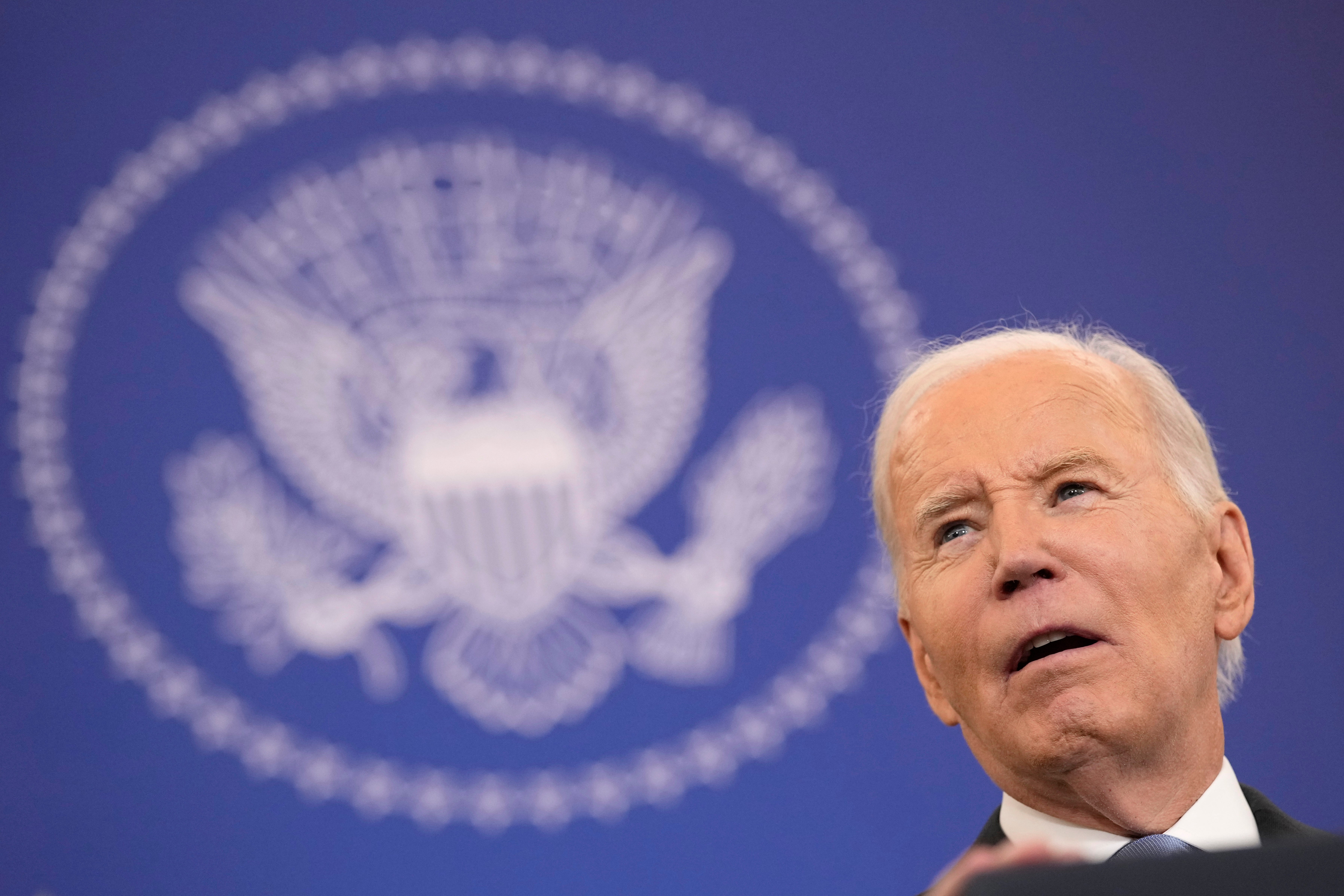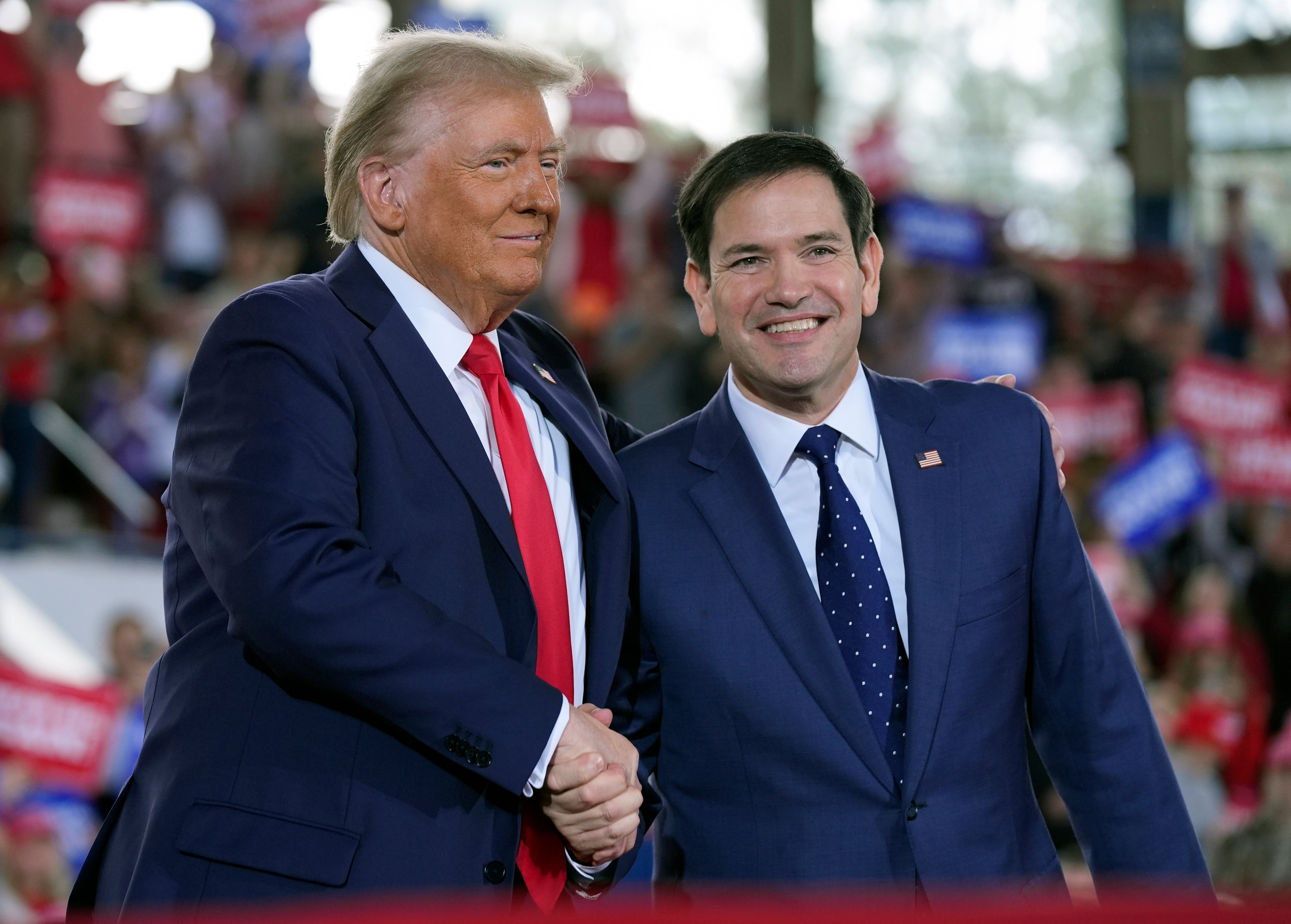Biden pulls Cuba from terrorism list, reversing Trump decision
The president notified Congress of its intent to lift the U.S. designation of Cuba as a state sponsor of terrorism on Tuesday
Your support helps us to tell the story
From reproductive rights to climate change to Big Tech, The Independent is on the ground when the story is developing. Whether it's investigating the financials of Elon Musk's pro-Trump PAC or producing our latest documentary, 'The A Word', which shines a light on the American women fighting for reproductive rights, we know how important it is to parse out the facts from the messaging.
At such a critical moment in US history, we need reporters on the ground. Your donation allows us to keep sending journalists to speak to both sides of the story.
The Independent is trusted by Americans across the entire political spectrum. And unlike many other quality news outlets, we choose not to lock Americans out of our reporting and analysis with paywalls. We believe quality journalism should be available to everyone, paid for by those who can afford it.
Your support makes all the difference.Joe Biden has removed Cuba from a list of nations classified as supporting international terrorism, reversing a decision by predecessor Donald Trump to crack down on the communist nation.
The president notified Congress of the intent to lift the U.S. designation of Cuba as a state sponsor of terrorism on Tuesday, less than a week before Trump is due to be sworn in for his second term.
The move is part of a deal facilitated by the Catholic Church to free “many dozens” of political prisoners on the island, jwho were jailed for protesting against the regime in July 2021. They are scheduled to be released by the end of the Biden administration at noon on January 20.
“The United States maintains as the core objective of our policy the need for more freedom and democracy, improved respect for human rights, and increased free enterprise in Cuba,” Biden said in a memo announcing his decision.
Additionally, Biden announced that he will rescind the 2017 National Security Presidential Memorandum 5 (NSPM-5) on Cuba policy to eliminate the so-called “restricted list.”
This will also eliminate “additional regulations on engagement” by U.S. persons and entities with Cuban persons and entities, “beyond that which is currently prescribed in U.S. legislation,” White House Press Secretary Karine Jean-Pierre explained in a statement.

“Achieving these goals will require practical engagement with Cuba and the Cuban people beyond what is outlined in NSPM-5, and that takes into account recent developments in Cuba and the changing regional and global context ... Accordingly, I hereby revoke NSPM-5,” the memo stated.
In a separate memo, Biden stated that the Cuban government had “provided assurances that it will not support acts of international terrorism in the future.”
Cuban officials had fought hard for the country’s removal from the list of State Sponsors of Terrorism (SST) throughout Biden’s term, but with little success.
Officials said on Tuesday that the government constantly reviews SST designations, and there was currently “no credible evidence” that Cuba was currently engaged in supporting international terrorism.

However, the determination is likely to be reversed as early as next week after the President-elect re-enters the Oval Office, alongside Secretary of State-designate Marco Rubio.
Rubio, whose family left Cuba in the 1950s before the communist revolution that brought Fidel Castro to power, has long been a proponent of sanctions on the communist island. He is due to appear before the Senate Foreign Relations Committee on Wednesday for his confirmation hearing.
Trump reinstated the designation on January 11, 2021, in the final days of his first administration, citing Cuba’s support for Venezuela’s leader, Nicolas Maduro, and its refusal to extradite Colombian rebels to Colombia, among other issues, including its continued harboring of wanted Americans.
There was no immediate comment from the Trump transition team or from Rubio or his office following the announcement Tuesday.
Texas Senator Ted Cruz, however, called out the decision as “unacceptable on its merits.”
“The terrorism advanced by the Cuban regime has not ceased. I will work with President Trump and my colleagues to immediately reverse and limit the damage from the decision,” Cruz said in a statement.

Join our commenting forum
Join thought-provoking conversations, follow other Independent readers and see their replies
Comments